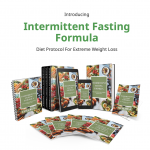This summary is based on the study:Stress may add bite to appetite in women: a laboratory study of stress-induced cortisol and eating behavior.
This study aimed to understand how stress can affect eating habits in women. Researchers explored whether certain physiological and psychological factors are related to eating after experiencing stress. They focused on cortisol, a hormone associated with stress, and its potential influence on eating behavior.
Fifty-nine healthy pre-menopausal women participated in the study. They were exposed to both a stress session and a control session on different days. The researchers observed that women who had higher cortisol levels in response to stress consumed more calories compared to those with lower cortisol levels. However, both groups ate similar amounts during the control session when no stress was present. Interestingly, the women with higher cortisol levels also showed a preference for sweet food.
Furthermore, the study found that an increase in negative mood due to the stressors was related to higher food consumption. These findings indicate that the way our mind and body respond to stress can influence our eating behavior. Over time, these patterns may impact weight and overall health.










